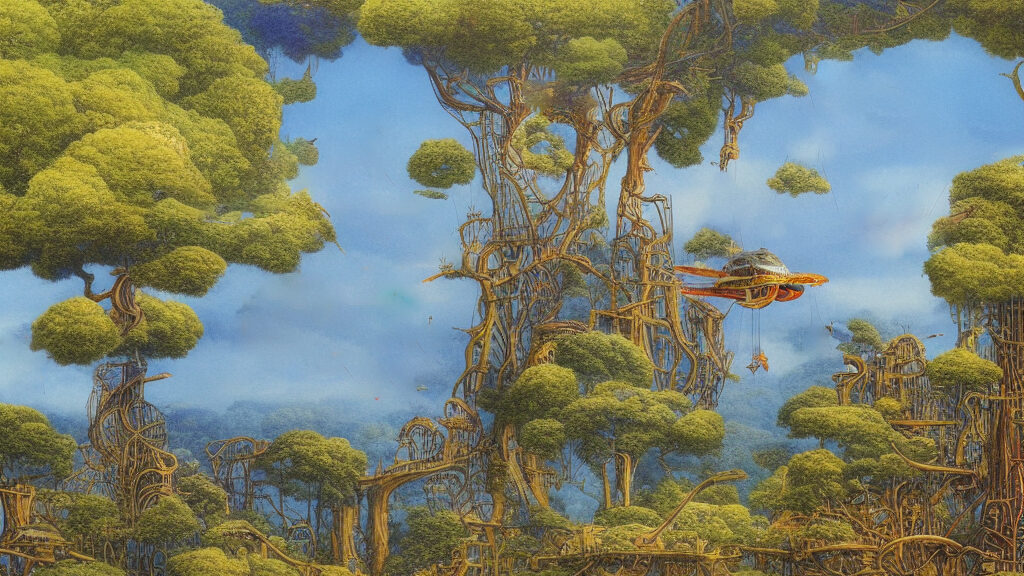
Introduction
Progressive rock in Spain is known as rock sinfónico, rock progresivo and rock sinfónico-progresivo. The closest to progressive rock in the late 1960s was Madrid band Los Relámpagos. They played instrumental surf rock highlighting the sound of the electric organ. Los Relámpagos had some success with their fusion of 1960s rock with the classical music of Spanish composers Albéniz, Turina, and Granados.
Spanish Progressive Rock in the 1970s
During the 1970s, Spain developed one of the most distinct progressive rock scenes in the world. Many progressive rock acts were involved in the fusions of progressive rock with Flamenco and traditional Spanish musical forms.
Two record labels had a profound influence in Spanish progressive rock. Producer Gonzalo García-Pelayo Segovia started the Gong label in 1974. This Madrid-based label owned by Movieplay released many of the best known acts of the decade, including Triana (Seville), Gotic (Barcelona), Granada (Madrid), Gualberto (Seville), folk-rock band Tílburi (Madrid), and Goma (Seville).
Another essential label for progressive rock was Madrid-based Chapa-Zafiro which released albums by Bloque (Torrelavega), Asfalto (Madrid), Crack (Gijón), Mezquita (Cordoba).
In Barcelona, the Edigsa label focused on singer-songwriters, Latin jazz and Catalan rock, with albums by sardana-influenced Companyia Elèctrica Dharma, Secta Sónica, and jazz-rock fusion keyboardist Jordi Sabatés.
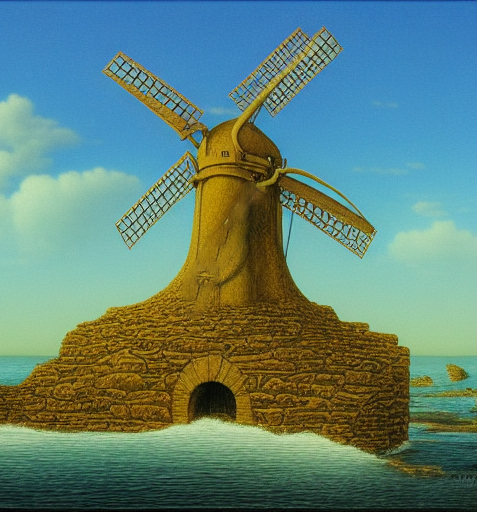
Pioneers
Progressive rock pioneers include Los Módulos (Madrid), Fusioon (Barcelona) and Smash (Seville). Los Módulos quickly became a chart topping romantic pop ballad group and there is very little trace of its progressive rock stage. Fusioon went on to make several albums: Fusioon (Belter, 1973), Fusioon 2 (Belter, 1974) and Minorisa (Ariola).
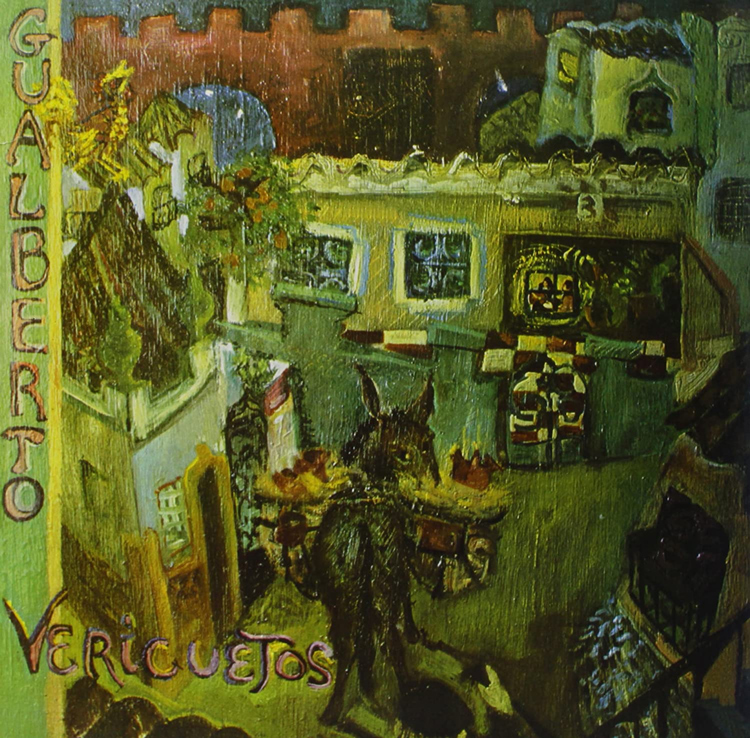
Smash released “Glorieta de los lotos” (Philips Records, 1970) and “We come to smash this time” (Philips Records, 1971). After he left Smash, one of its founders, sitar player Gualberto, recorded several solo albums combining progressive rock, Flamenco and Indian music: A La Vida, Al Dolor (Movieplay, 1975); Vericuetos (Movieplay, 1976); Otros Dias (Movieplay, 1979) and Gualberto y Agujetas (Movieplay, 1979).
Progressive Rock Meets Flamenco
In southern Spain, several bands inspired by British and American acts developed rock andaluz (Andalusian Rock), a fascinating mix of rock music with Flamenco. In many cases, these bands ventured into progressive rock. Iman, Califato Independiente revolutionized Spanish music with a fusion of progressive rock, Flamenco, Arabic and jazz sounds. Iman released “Imán, Califato Independiente” (CBS, 1978) and “Camino Del Águila” (CBS, 1980).
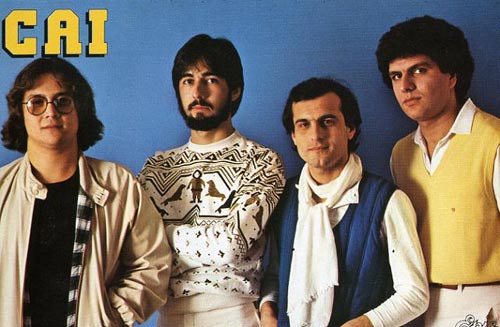
Another southern band, Cai, incorporated progressive rock, jazz fusion and Flamenco. Its young keyboardist, Chano Dominguez, went on to become the leading jazz pianist in Spain and is well known for his brilliant fusions of Flamenco, Andalusian song and jazz. Cai released Más Allá de Nuestras Mentes Diminutas (Trova Records) in 1978.
Madrid: Progressive Rock Melting Pot
Los Canarios
Los Canarios, initially a rock and blues band formed in the Canary Islands, relocated to Madrid. Led by Teddy Bautista, Canarios released one of the masterpieces of Spanish progressive rock, a double album titled Ciclos (Ariola Records, 1974) loosely based of Vivaldi’s Four stations.
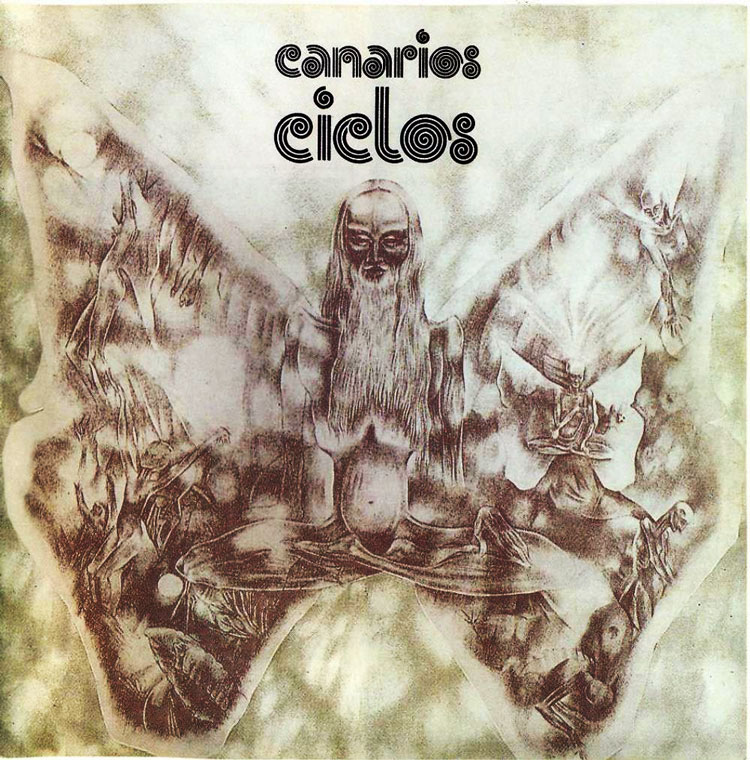
Granada
Granada became a key band in the Spanish progressive rock scene. The band’s name came not from the city of Granada but from the pomegranate, which is called granada in Spanish. Granada, led by Madrid multi-instrumentalist Carlos Cárcamo, initially showed Andalusian influences and even American folk-rock elements on “Hablo de una tierra” (1975) and “España, año 75” (1976). However, Granada later introduced more keyboards and classical elements and by the last and best album, “Valle del Pas” (1978), the Spanish roots had migrated to the northern regions of Spain, showing Celtic music influences, including the use of bagpipes.
Azahar
Another act based in Madrid was Azahar, with musicians from Spain, Egypt and South America. They initially used two keyboardists and no guitarist. Their music was a mix of progressive rock with Arabic, Andalusian and psychedelic influences. They released Elixir (Movieplay, 1977) and Azahar (Movieplay, 1979).
Asfalto
One of Spain’s best hard rock bands, Asfalto, from Madrid, recorded a progressive rock album titled “Al Otro Lado” (Chapa Discos, 1978). Later, Former Asfalto musicians later formed Topo. Their first album, titled Topo, is regarded as a progressive rock album. They later went into a hard rock direction.
Ñu
Ñu, led by José Carlos Molina, a flute player who looked very similar to Ian Anderson, was clearly influenced by Jethro Tull. Other musical influences included medieval, Celtic and hard rock. The most ‘progressive’ album was “Cuentos de ayer y de hoy” (Chapa Discos, 1978).
Azabache
In 1978 Azahar split in half. Antonio Valls and Dick Zappala continued with the band. Bassist and guitarist Jorge ‘Flaco’ Barral and keyboardist Gustavo Ros formed a new progressive rock group called Azabache. The band was completed with guitarist Daniel Henestrosa and drummer Ricardo Valle. Azabache released Días de Luna (Movieplay, 1979). Ricardo Valle left the band and Flaco Barral recruited fellow Uruguayan drummer, Hermes Calabria. Miguel Torres also joined Azabache on vocals and flute. They released “No, Gracias” (Movieplay, 1980). Azabache disbanded in 1981.
Barcelona: Progressive Rock and Fusion
During the 1970s, musicians in the Barcelona area seemed more interested in fusion and Latin jazz. However, three progressive rock bands stood out: Fusioon, Atila and Iceberg. Atila sang in Catalan and played classically-influenced progressive rock.
Iceberg was a band formed by seasoned rock, pop and jazz session musicians. Their first album, Tutankhamon (Serdisco, 1975) was a progressive rock concept album with lyrics in Spanish, but jazz was in the musicians’ blood, and it quickly became one of Spain’s leading fusion bands. Consequently, Iceberg released Coses Nostres (1976), Sentiments (1977) and Arc-en-ciel (1979). In 1980 Iceberg broke up and gave way to another fusion band called Pegasus.
Gotic had a lead flute player and mixed symphonic rock with folk elements. Their one and only album was Escenes, released in 1978. Line-up: Rafael Escoté on bass, Jordi Martí on drums, Jep Nuix on flute, Jordi Vilaprinyó on keyboards, Josep Albert Cubero on guitars, and Jordi Vidal on effects. The album’s cover artwork emulated the Roger Dean style.
Another act frequently associated with progressive rock was Companya Electrica Dharma. They combined rock with jazz elements and Catalan folk music, using the tenora horn as their main solo instrument. Their style was sometimes called sardana rock (sardana is the most popular folk dance in the Catalan region).
The Northern Bands
Two bands from northern Spain, Crack and Bloque, released essential albums during the 1970s.
Crack
The short-lived Crack (from Gijón in the Asturias region) released “Si todo hiciera Crack,” an album that, unlike other bands in Spain, showed influences from Italian and British progressive rock.
Bloque
Bloque, from Torrelavega (Cantabria) had a longer career and released several fine progressive albums, including ‘Bloque’ (Chapa/Zafiro, 1978), “Hombre, Tierra y Alma” (Chapa/Zafiro, 1979), “Música para la libertad” (1981) and “En Directo” (1999). Bloque was very popular throughout Spain thanks to extensive touring.
In the Basque Country, the most interesting acts were Itoiz and Errobi.
Itoiz released two progressive rock albums, Itoiz (1978) and Ezekiel (1980). Band members included Joseba Erkiaga (flute), Estanis Osinalde (drums), Juan Carlos Perez (guitar and vocals), Jose Garate (bass) and Jose Antonio Fernandez (keyboards).
Errobi released one of the finest Basque progressive rock recordings: Ametsaren Bidea (1979). This album fused progressive rock with Basque folk music. Errobi’s line up included Beñat Amorena (drums and vocals), Mikel Ducau (vocals and guitars and keyboards), Anje Duhalde (guitar and vocals) and Mikel Halty (bass).
A short lived band from Cantabria called Ibio introduced elements from Cantabrian folk music.
The Scene in Valencia
As one of Spain’s largest cities, Valencia also had its progressive rock scene. The best known acts were Cotó en Pel, Tarántula and Eduardo Bort.
Cotó en Pel released only one album album: Holocaust (Dial Discos/Nevada, 1978). The lineup included Pep Llopis on organ, synthesizer, mellotron, and vocals; Carles Pico on electric guitar, acoustic guitar; Vicent Cortina on drums, percussion; and Paco Cintero on bass, cornet, and vocals.
Tarántula formed in 1973 and released a self-titled debut album in 1976 on Zafiro’s Chapa label. The lineup included Vicente Guillot on keyboards, Miguel Izquierdo on drums, Jose Pereira on bass, Herminio Barranco on guitar and El Ferro (Alfonso) on flute.The second album features a different lineup and is essentially a pop album.
The 1980s
As in other countries, the early 1980s was a very difficult time for progressive rock in Spain. Many of the best bands had disbanded and the attention of record labels and music critics was focused on punk rock and new wave (called nueva ola in Spanish). In Spain, Madrid was the focal point for the music business and its thriving arts scene was known as “la movida” madrileña. This movement included not just musicians but also painters, graphic artists and movie makers like Almodovar.
However, progressive rock had a comeback. Fueled by the renewed interest in the mid-1980s, Spain saw a resurgence of progressive rock bands. Leading acts during this period include Galadriel (Madrid), Harnakis (Barcelona), Onza (Jerez de la Frontera, in southern Spain), Mascarada (Madrid), Altair, Isthar.
Fanzines
Progressive music fan and illustrator Santos Barroso (aka Koldo), based in the Madrid suburb of Mostoles, developed a fanzine called Syn. This grassroots publication became an important resource for the progressive rock community in the mid 1980s.
Exposure samplers
The Exposure progressive rock samplers introduced new Spanish groups to an international audience. These LPs were produced by Steven Wilson (Porcupine Tree) and Angel Romero (Mindchild Records). The first LP, released in 1986, included Madrid bands Pharaon and Aletse Soida. The 2-LP Double Exposure featured Isthar (Madrid), Heimdal (Barcelona), and Galadriel (Madrid). The last volume of the Exposure series included Harnakis (Barcelona band featuring former members of Heimdal) and Rivendel (Madrid).
Mindchild Records
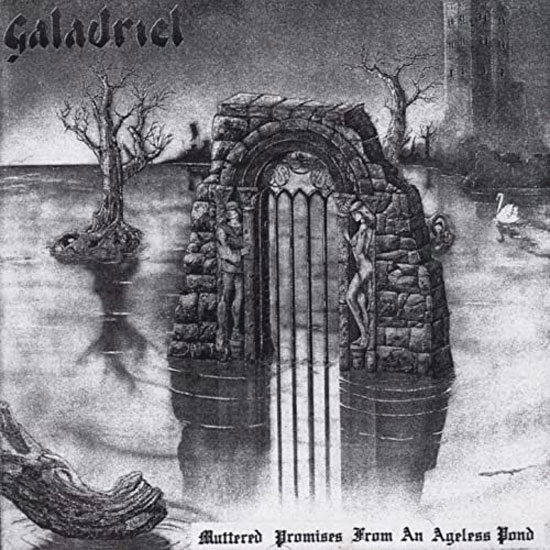
Mindchild Records was a small independent progressive rock label started by music journalist Angel Romero, who at the time was a full time journalism student at Madrid’s Complutense University. The label released Galadriel’s debut cassette. It was a three track demo titled La Escalinata. Mindchild also released cassettes by Barcelona electronic band Mutual Assured Destruction and progressive rock band Ty-Jir. Mindchild Records co-produced and released Galadriel’s debut album on LP, Muttered Promises from an Ageless Pond (1988). This album was later licensed to French label Musea, who released it on CD.
The 1990s
By the 1990s, most of the 80s bands had disappeared except for Galadriel, Rivendel and Harnakis, all of which released albums. Galadriel changed line-up several times and released two albums in the 90s: Chasing the Dragonfly (Musea, 1992) and Mindscapers (Musea, 1997).
New bands surfaced, such as Alquilbencil, Altair, Amarok, Dificil Equilibrio, Doctor No, and Dracma.
Amarok released Els nostres petits amics (1994), Canciones de los mundos perdidos (1995), Gibra’ara (1998)
2000-2010
Madrid-based October Equus became one of the leading acts in the avant-garde category of progressive rock. The ensemble, formed in 2003, plays RIO-style instrumental pieces with the complexity of contemporary chamber music, performed with the energy of rock and the spontaneity of jazz and free improvisation. The group, which is still active, released three albums.
2011 – 2020
Several members of October Equus formed Ofir in 2011. The band is characterized by the mix of progressive rock with Sephardic music and jazz.
In 2012, members of two legendary bands, Cai and Iman, formed a new group called Caeman.
